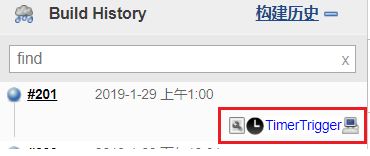pipeline常用插件用法
pipeline 常用插件语句
1、checkout SCM 可以用来下载git仓代码,还可以支持cherry pick 某个patch
checkout([$class: 'GitSCM', branches: [[name: '*/master']],
userRemoteConfigs: [[url: 'http://git-server/user/repository.git']]])
- url Type: String
- branch (optional) Type: String
- changelog (optional) Type: boolean
- credentialsId (optional) Type: String
- poll (optional) Type: boolean
用法:https://jenkins.io/doc/pipeline/steps/git/
checkout([$class: 'GitSCM', branches: [[name: "${branch}"]], doGenerateSubmoduleConfigurations:
false, extensions: [[$class: 'RelativeTargetDirectory', relativeTargetDir: "${relative_dir}"]],
submoduleCfg: [], userRemoteConfigs: [[url: "${repo_url}"]]])
checkout([$class: 'GitSCM', branches: [[name: env.GERRIT_BRANCH]],
doGenerateSubmoduleConfigurations: false, extensions: [[$class: 'RelativeTargetDirectory',
relativeTargetDir: "${relative_dir}"], [$class: 'BuildChooserSetting', buildChooser: [$class:
'GerritTriggerBuildChooser']]], submoduleCfg: [], userRemoteConfigs: [[refspec:
env.GERRIT_REFSPEC, url: "${repo_url}"]]])
2、pipeline启动一个job,build
build job: 'my_job', parameters: [string(name: 'name', value: liurizhou), string(name: 'age', value:
12)],propagate: false,wait: false
用法:https://jenkins.io/doc/pipeline/steps/pipeline-build-step/
3、发布报告,publishHTML
publishHTML (target: [
allowMissing: false,
alwaysLinkToLastBuild: false,
keepAll: true,
reportDir: 'info',
reportFiles: 'manifest.html, report.html',
reportName: "Summary Report"
])
用法:https://jenkins.io/doc/pipeline/steps/htmlpublisher/
4、withDockerContainer ,pipeline中启动docker镜像运行
withDockerContainer(args: '-e "http_proxy=xxxxx" -e "https_proxy=yyyyyy" -v "/home/my/workspace:/home/my/workspace"',
image: 'myimages:latest') {
sh "cd /home/my/workspace && ls -l"
}
用法:https://jenkins.io/doc/pipeline/steps/docker-workflow/
5、emailext, pipeline中实现邮件发送
emailext (
subject:"标题",
body:"""
正文
""",
to:"[email protected]"
)
用法:https://jenkins.io/doc/pipeline/steps/email-ext/
6、manager.addBadge,在build history条目中增加标签

manager.addBadge(
"computer.png",
"${script.env.NODE_NAME}",
manager.hudson.getRootUrl() + "computer/" + "${nodeName}"
)
用法:https://jenkins.io/doc/pipeline/steps/badge/
补充:manager有很多用法,例如:
manager.createSummary(“star-gold.gif”).appendText(“test test test”)
addShortText(text, color, background, border, borderColor),addInfoBadge(text)等
参见:https://wiki.jenkins.io/display/JENKINS/Groovy+Postbuild+Plugin
7、cleanWs()或者deleteDir(), 删除工作目录
cleanWs() //删除${WORKSPACE}目录
dir("${env.WORKSPACE}@tmp") { //删除${WORKSPACE}@tmp目录
deleteDir()
}
dir("${env.WORKSPACE}@script") { //删除@script目录
deleteDir()
}
dir("${env.WORKSPACE}@script@tmp") { //删除@script@tmp目录
deleteDir()
}
8、获取shell 命令的返回值和状态
//获取标准输出
//第一种
result = sh returnStdout: true ,script: ""
result = result.trim()
//第二种
result = sh(script: "", returnStdout: true).trim()
//第三种
sh " > commandResult"
result = readFile('commandResult').trim()
//获取执行状态
//第一种
result = sh returnStatus: true ,script: ""
result = result.trim()
//第二种
result = sh(script: "", returnStatus: true).trim()
//第三种
sh '; echo $? > status'
def r = readFile('status').trim()
9、归档工件 archiveArtifacts
archiveArtifacts '*report.html'
效果同freestyle类型中Archive the artifacts 插件
https://blog.csdn.net/liqiangeastsun/article/details/79062806:

用法:
https://jenkins.io/doc/pipeline/steps/core/
10、withCredentials ,pipeline中避免使用密码明文
steps{
withCredentials([usernamePassword(credentialsId: 'user_for_openshift', passwordVariable: 'password', usernameVariable: 'username')]) {
sh 'docker login -u $username -p $password registory.ctiwifi.cn:5000
}
}
用法:https://jenkins.io/doc/pipeline/steps/credentials-binding/
11、Artifactory 插件用来上传下载等操作
rtServer (
id: "Artifactory-1",
url: "https://XXXXXXXXXXX/artifactory",
// If you're using username and password:
username: "username",
password: "password"
)
rtDownload (
serverId: "Artifactory-1",
spec:
"""{
"files": [
{
"pattern": "project1/temp/1.txt",
"target": "${WORKSPACE}/dependencies/",
"flat": "true"
}
]
}"""
)
用法:https://jenkins.io/doc/pipeline/steps/artifactory/#artifactorygradlebuild-run-artifactory-gradle
示例:
https://www.jfrog.com/confluence/display/RTF/Working+With+Pipeline+Jobs+in+Jenkins
https://github.com/jfrog/project-examples/tree/master/jenkins-examples/pipeline-examples
另外还可以使用脚本试的写法:
def deps_download(list){
def server_url="https://xxxxxxxx/artifactory"
def server = Artifactory.newServer url: "${server_url}", username: 'username', password: 'passwd'
server.bypassProxy = true
for(dep_path in list){
if(dep_path.contains(server_url)){
dep_path = dep_path.split(server_url)[-1]
}
def downloadSpec = """{
"files": [
{
"pattern": "${dep_path}",
"target": "${WORKSPACE}/dependencies/",
"flat": "true"
}
]
}"""
server.download(downloadSpec)
}
}
12、findFiles,readJSON等
用法:https://jenkins.io/doc/pipeline/steps/pipeline-utility-steps/
13、常用pipeline step
用法:https://jenkins.io/doc/pipeline/steps/workflow-basic-steps/#retry-retry-the-body-up-to-n-times
Table of Contents
Pipeline: Basic Steps
catchError: Catch error and set build result to failure
deleteDir: Recursively delete the current directory from the workspace
dir: Change current directory
echo: Print Message
error: Error signal
fileExists: Verify if file exists in workspace
isUnix: Checks if running on a Unix-like node
mail: Mail
pwd: Determine current directory
readFile: Read file from workspace
retry: Retry the body up to N times
sleep: Sleep
stash: Stash some files to be used later in the build
step: General Build Step
timeout: Enforce time limit
tool: Use a tool from a predefined Tool Installation
unstable: Set stage result to unstable
unstash: Restore files previously stashed
waitUntil: Wait for condition
warnError: Catch error and set build and stage result to unstable
withEnv: Set environment variables
wrap: General Build Wrapper
writeFile: Write file to workspace
archive: Archive artifacts
getContext: Get contextual object from internal APIs
unarchive: Copy archived artifacts into the workspace
withContext: Use contextual object from internal APIs within a block